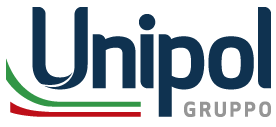Products, services and investments for the fight against climate change
Our offer of insurance products and services helps customers address climate risks and increase their resilience.

Through its range of insurance products and services, UnipolSai offers the market innovative solutions targeted at both mitigation and adaptation to climate change.
With regard to reducing climate change, there are products earmarked for sectors that encourage the transition towards a low carbon emission economy such as the “Energia Sole” product for companies that produce energy from renewable energy sources, or products that reward virtuous behaviour like the KM Servizi and KM Sicuri tariffs that reduce premiums according to vehicle use using the “Pay as you drive” mechanism whereby customers can directly decrease the risk of accidents happening while simultaneously pursuing the goal of mitigating climate change through lower pollution.
With regard to adaptation to climate change, in addition to the DERRIS project described below, and ADA project, various services have been developed to help prevent the risks by customers and consequently reduce potential damage. For example with regard to intense weather events, the Alert Meteo system, developed on the basis of a predictive model by UnipolSai in association with DataMeteo® and Leithà, can warn customers of the risk of strong hailstorms in advance and was extended to Linear in 2020.
Activation of public-private partnerships with Italian municipalities to increase the resilience of SMEs to climate change - Project LIFE DERRIS
Unipol Gruppo/Group acted as the leading partner of the LIFE DERRIS (Disaster Risk Reduction Insurance) project, co-financed by the European Commission through the Life program, together with the partners Città di Torino, Cineas, Anci, Coordinamento Agende 21 and UnipolSai. DERRIS was the first European project to combine the public administration (PA), businesses and the insurance sector so as to reduce risks caused by extraordinary climate events. The aim of the project was to test and implement an innovative form of public-private partnership between insurance companies, municipalities and businesses to increase the resilience of Italian SMEs to climate change, providing them with a simple and free tool (CRAM) for the evaluation, prevention and management of risks related to catastrophic events.

The pilot testing of the DERRIS project took place in the city of Turin and witnessed the involvement of 30 SMEs, located in six specific areas, which received free technical support from project experts, namely:
- an assessment of their vulnerability to weather and climate events with two on-site inspections to find the potential risks to which the company was exposed and the risk-reduction measures that could be undertaken;
- a course of five training meetings aimed at acquiring useful knowledge in reference to the prevention and management of risk and emergencies.
The aim was to guide companies in drafting an action plan for adaptation to climate change.
During the Turin pilot test, the project developed a simple and immediate tool (CRAM) giving SMEs the ability to understand, through geo-referencing, what risks they are exposed to, the seven dangers of the DERRIS project (flood, rainfall, wind, lightning, hail, temperature and landslide), and what could be the solutions to be applied at their companies to prevent damage.
In order to allow as many Italian SMEs as possible to identify the main weather and climate risks to which they are exposed and to set out possible actions for the management of emergencies and reduction of exposure to risks, starting in 2017 testing was extended to other 14 local authorities: Alghero, Almese, Avigliana, Bassiano, Bologna, Genoa, Milan, Molfetta, Padua, Pescara, Rovereto, Udine, Varese and the Union of Municipalities of the Empolese Valdelsa district. In the local areas involved, the companies had the opportunity to take advantage of training hours and technical support (by carrying out on-site inspections) so as to draft their action plans for adaptation to climate change by completing the CRAM tool.
Watch the video tutorial for a self-assessment of climate risk created as part of the European DERRIS project and the video of the project.
Investments
With regard to the mitigation of climate change, the Group is committed to supporting and promoting sustainable companies through investment decisions that take ESG criteria into account.
The SRI Investment Policy attached to the Group's Investment Policy formalises the need to take into consideration factors, when selecting the companies in which to invest, related to the ESG dimensions, and provides for the exclusion of companies and countries where investments may be directed to.
With regard to climate-related issues, for the selection of corporate equities and bonds, the Group assesses whether there is an environmental management strategy and policy that takes into consideration the environmental impact of the company's production processes, and rules out any investments in companies involved in serious environmental damage and in the exploitation of natural resources that does not take due account of the related environmental impacts.
In particular, with reference to climate change, the Group is committed to:
- supporting the transition to a low-carbon economy through responsible investment. To this end, investments in various asset classes will be assessed for the purpose of contributing to the reduction of CO2 emissions;
- making selective exclusions: recognising the particularly harmful impact on the climate of the use of coal as a thermal source, the Group excludes a priori any investments in companies related to the mining of, electric power generation from, thermal coal.
With regard to government securities, the Group evaluates the ratification of key environmental protection treaties and agreements drafted by the UNFCCC and the overall environmental performance of the various countries in terms of legislation and implementation of environmental laws.
Thematic investments, of which the 2019-2021 Strategic Plan foresees an 83% increase, are also tools to support the fight against climate change, with a special inclination for green energy and green technology.
To reduce exposure to CO2 emissions in its investment portfolio, the Group is a CDP Investor signatory in order to obtain useful information to correctly assess the climate impact of investment choices and has joined the Talanoa Call for Action.
Moreover, in order to start adequate active engagement practices, UnipolSai has joined the Climate Action 100+, a partnership promoted by investors (UNPRI, CERES) to involve the most polluting companies in terms of greenhouse gas emissions and improve the governance of the phenomenon of climate change, reduce emissions and strengthen financial transparency on these issues.


